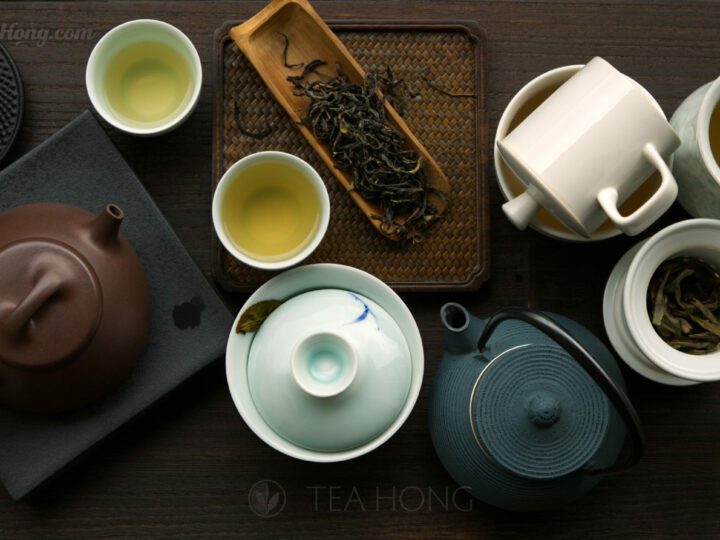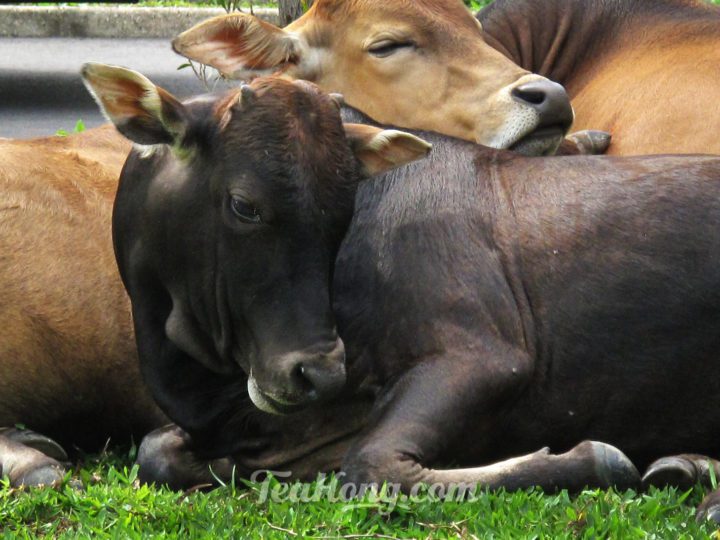Fragrance of Duck Poo?
You may have heard of the name and thought it was a joke or some kind of fake news. As a matter of fact, the real name is Fragrance of Duck Poo Single Bush Tea.
Ya Shi Xiang Dancong, as romanised from the original Chinese name 鴨屎香單欉, is a cultivar unique in the Phoenix ( Fenghuang ) region. It yields the leaves for two of our popular selections: Snow Orchid and Orchid Literati.
Duck Poo Tea is not Big Black Leaf


White jade orchid — michelia alba — is an ingredient in scenting most jasmine teas. It is not an orchid at all, but an intensely fragrant magnolia.
Contrary to rumours on the internet, Ya Shi Xiang is not the same as the cultivar Da Wu Ye, ( literally Big Black Leaf ), which gives our tea Black Leaf Special. Those who have compared this with Snow Orchid or Orchid Literati have definitely experienced the difference. Da Wu Ye is a more prevalent and easier plant than Duck Poo tea tree, therefore a more affordable tea. Some merchants are spreading the rumour for obvious reasons.
In the 1990’s when I first tasted the original version, they said the marketing name was Cao Lan Xiang Dancong. The Chinese version of the product name for Orchid Literati is still that at the time of this writing. I asked the same question as you may be now asking — why Duck Poo? The simple answer is that it was simply a folksy name given by an uneducated farmer. I will have more about this later.
“Lan” is romanised from the Chinese word for orchid, but refers to many more different kinds of flowers in the regional dialect. For example, Bai Lan — literally translates as white orchid, is actually a local name for michelia alba ( aka magnolia alba, white sandalwood, white champaca, white jade orchid etc ). It is a tall tree which white, thick petal flowers has a very strong yet pleasant fragrance. It is the city flower of the local county seat, Chaozhou, the gongfu tea capital of the world, and where dancong oolongs are the prevalent tea of choice.


Leaves of the Da Wu Ye cultivar: they are proportionally wider than those of Ya Shi Xiang. Their veins are also lighter in colour. Da Wu Ye, which literally translates as Big Black Leaves, is the cultivar that yields our Black Leaf Special, while the Duck Poo Tea gives the leaves for Orchid Literati and Snow Orchid


One of my producers climbed onto an 100 year old Duck Poo tea for fun.
Duck poo soil?
People here like flowers and the word “Lan” so much that you can see the word in quite a few Dancongs. Some are actual cultivar names: Mi Lan Xiang, Zhi Lan Xiang, Yu Lan Xiang; some purely marketing names: Lan Hua Xiang ( one of the names for Big Black Leaf ), Mì Lan Xiang ( not to be confused with Mi Lan Xiang ) etc. The teas have nothing to do with any orchid flowers. Just that people here want to give that romantic aura with names of blooms that are normally more associated with civility and natural beauty.
And indeed, when you are in the processing room while the leaves are being oxidised, the aroma is even more bouquet than any actual blooming gardens or green houses.
The other word that you may have noticed is “Xiang”. Literally fragrant or fragrance, it is prevalent in names for dancong oolongs, reflecting a sentiment of the local tea culture and the nature of the tea.
The name Duck Poo, therefore, is a dramatic anti-thesis of the idea most tea naming here, if not the whole of the global tea community. There are quite a few sayings as to how that name came about. The most believable one is that a certain kind of soil, with a distinct yellowish appearance that farmers think that its kind of like duck poo colour. It is supposed to be a good soil for tea bushes. When a century ago the first farmer who produced this dancong was asked what tea bush make such wonderful tea, he just created that name from the soil in which he had the bush planted.
A few years ago, the local tea community got together and unified the marketing name to Yin Hua Xiang Dancong — 銀花香單欉. Literally translates as Fragrance of Silver Flower, that name is not giving you much beyond the original name, except that it’s not so rustic. There is no such flower of that name either.
- You will find tightly rolled leaves in Orchid Literati. Here, the leaves have been infused 4 full 5 min rounds before they are more open to reveal the fine serrated edge typical of the cultivar.
- The leaves of Snow Orchid open more readily. In both cases, the workmanship and pluck quality are visibly superb.
Orchid Literati and Snow Orchid
The two teas we offer that are produced from cultivar Ya Shi Xiang, Orchid Literati and Snow Orchid, are processed quite differently. Each has its own unique manifestation of the leaves’ potential. That is why although they have some common traits in the taste profile, but the overall impression is entirely different.
Orchid Literati is processed in the slow and traditional dancong style from Wudong first flush, baked repeatedly in low heat to finish before we rest and mature it for release. These Ya She Xiang bushes in the famous peak of Phoenix Mountains are plucked only once a year and just for that harvest. This is likely to be how it would taste back in 19th century when it first came out and given that funny name.
To me the taste is perhaps one of the most intricate, lively and brisk yet in a very civilised manner. That is why I gave it the name.
Snow Orchid, on the other hand, is the last pluck of the year from farms in the mid levels of Phoenix, where they harvest as needed. The last pluck in oolong in this traditional areas gives the highest peak in the fragrance. Making of the green ( Zao Qing ) — what the West understands as “oxidation” — is relatively shorter and rushed, meant to maximise and retain that seductive aroma.
The oxidised leaves are not baked, but rather freeze-dried through a modification of the process. As heat is not used in the drying process, aromatic oils in the leaves are less likely to evaporate into the air. Heat from the infusion water will release an amount of tea aroma unmatched by any other natural tea.
I think with Snow Orchid you can easily please any crowd. It is a great entertainment tea. Orchid Literati demands its own time and space. It is the tea for that quiet or meditative moment. Or for someone sensitive enough for such time.
Let me know what you think of them.









